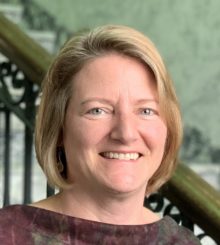Foresight’s Editorial team and Advisory Board make it possible for us to bring our readers the very best combination of research from top academics and insights from the experience of leading business forecasters in the field.
 Michael Gilliland, Editor-in-Chief
Michael Gilliland, Editor-in-Chief
Mike Gilliland retired from SAS in 2021, and at the end of 2022, succeeded Foresight’s founding editor, Len Tashman, as Editor-in-Chief. At SAS he served 17 years in product management and marketing positions for SAS forecasting software. Prior to this, he spent 19 years in forecasting, supply chain, and consulting positions in the food, consumer electronics, and apparel industries. In 2017 Mike received the Lifetime Achievement Award from the Institute of Business Forecasting. He is the author of “The Business Forecasting Deal” (2010), principal editor of “Business Forecasting: Practical Problems and Solutions” (2015) and “Business Forecasting: The Emerging Role of Artificial Intelligence and Machine Learning” (2021), and editor of “Forecasting with SAS®: Special Collection” (2020). Mike holds a B.A. in Philosophy from Michigan State University and master’s degrees in Philosophy and Mathematical Sciences from Johns Hopkins University.
 Stephan Kolassa, Deputy Editor
Stephan Kolassa, Deputy Editor
Stephan Kolassa, Data Science Expert at SAP AG, Switzerland. He is responsible for the statistical and time series analysis aspects in developing software for automatic and robust causal forecasting of daily SKU/store level data in the retail sector. He is also involved in research for downstream forecast-based processes, such as price optimization, assortment planning, and replenishment. In his spare time, he does inferential statistics in biological and clinical psychology. In 2023 Stephan was named a Fellow of the IIF.
 Simon Clarke, Associate Editor
Simon Clarke, Associate Editor
Simon Clarke has been an active member of the Foresight family since the publication began in 2005. Then Group Director of Forecasting at Coca-Cola, Simon led a team of several dozen forecasting professionals, creating the highly collaborative forecasting process described in his first (of many) Foresight articles Transformation Lessons from Coca-Cola Enterprises Inc.: Managing the Introduction of a Structured Forecast Process (Issue 4, June 2006). Simon has been a long-standing member of the Foresight Advisory Board, presented talks at ISF2012 in Boston and 2015 in Riverside, and has penned a dozen columns, commentaries, and book reviews for this journal. He currently serves as a Principal at Argon & Co (formerly Crimson and Co), whose services guide business operations, development, and transformations. His three-part blog for Argon briefly highlights the purpose, context, and objectives of the forecasting function.
 Fotios Petropoulos, Associate Editor
Fotios Petropoulos, Associate Editor
Fotios Petropoulos is an associate professor at the School of Management, University of Bath. Previously he served as an assistant professor at the Cardiff Business School of Cardiff University, senior research associate at the Lancaster University Centre for Forecasting (2012-2014) and research associate and unit coordinator of the Forecasting & Strategy Unit of National Technical University of Athens (NTUA) from 2003 to 2012. His research program has addressed behavioral aspects of forecasting and forecast process improvement in business and supply chain. He has provided knowledge transfer and consultancy in retail, supply chain, spare parts, utilities, and software development. Fotios is also an associate editor of International Journal of Forecasting. Lastly, he is a co-founder of the Forecasting Society, which promotes and disseminates judgmental forecasting research and its applications.
 Aris Syntetos, Associate Editor
Aris Syntetos, Associate Editor
Aris Syntetos is a professor of Operational Research and Operations Management at Cardiff University and Supply-Chain Forecasting editor for Foresight. He also serves on the Executive Committee of the International Society for Inventories Research (ISIR) and on the board of directors of the International Institute of Forecasters (IIF). Aris has advised many businesses on supply chain forecasting and inventory management.
Column Editors
 Jeff Baker, Forecasting Practice
Jeff Baker, Forecasting Practice
Jeff Baker has over 25 years of experience in demand management, S&OP, and advanced planning and scheduling. In 2018, he earned a Master of Engineering in Supply Chain Management from the Massachusetts Institute of Technology. Jeff is the recipient of Supply & Demand Chain Executive’s 2019 Pros to Know award, and the Institute of Business Forecasting and Planning’s 2019 Excellence in Business Forecasting award. He is an advocate for advancing the supply chain management field and does so through training, speaking, and volunteering at events worldwide.
 Shari De Baets, Judgemental Forecasting
Shari De Baets, Judgemental Forecasting
Shari De Baets has a PhD in applied economics from Ghent University and is an assistant professor at the Open University of the Netherlands and visiting professor at the KULeuven, Belgium. She is an engaged researcher and teacher in the cross-disciplinary field of behavioral science and automation in society, the workplace, and business (operations management and project management), with a strong interest in judgmental forecasting and the human perception of algorithms in work life.
 Patrick Bower, Practitioner’s Corner
Patrick Bower, Practitioner’s Corner
Patrick Bower is Senior Director of North American Supply Chain at Actylis, a manufacturer and distributor of specialty chemicals for life sciences. He previously held leadership roles at Combe, Cadbury, Kraft Foods, Unisys, and Snapple, among others. Patrick is a frequent writer and speaker on supply-chain subjects, has been recognized four times by Supply and Demand Chain Executive magazine as a “Pro to Know,” and was named by Consumer Goods Technology magazine as one of their 2014 Visionaries. In 2012 he received the inaugural Excellence in Business Forecasting and Planning Award from the Institute of Business Forecasting. Patrick also writes the S&OP feature for ASCM’s “SCM Now” blog.

Elaine Deschamps, Government & Public Policy
Elaine Deschamps is Executive Director of the Washington State Caseload Forecast Council, an independent state agency responsible for producing entitlement forecasts that provide the foundation for 80 percent of the Washington State budget. These forecasts include health care, public education, the criminal justice system, human services, and public assistance programs. Elaine has spent 25 years in public service, previously as Senior Fiscal Analyst for the Washington State Senate Ways and Means Committee, in charge of the low-income health care and public health budgets. She received double majors in political science and economics from the University of Puget Sound, and her MA and PhD in political science from Indiana University. Elaine has published articles in the International Journal of Forecasting and Foresight: The International Journal of Applied Forecasting. Her interests involve organizational dynamics of forecasting, health care and budget forecasting, judgmental adjustments, and collaborative forecasting. She has served on the Editorial Board of Foresight and has consulted in both the public and private sector, in arenas ranging from low-income health care to supply chain forecasting.
 Anne-Flore Elard, Forecasting Support Systems
Anne-Flore Elard, Forecasting Support Systems
Anne-Flore Elard is a practitioner in Data Science and Advanced Analytics with an MBA from MIT Sloan. Her thesis focused on collective intelligence frameworks, after which she developed applications leveraging text similarity measurement and created AI service offerings for multiple companies. Since 2018, she has deepened her expertise in forecasting by utilizing Machine Learning techniques and is currently building an advanced analytics practice and service offering for Kinaxis.

Paul Goodwin, Hot New Research
Paul Goodwin is a professor emeritus of management science at the University of Bath. He has a PhD from Lancaster University, and his research is concerned with methods for incorporating management judgment into forecasts to improve accuracy. He has provided forecasting advice to many organizations and in 2013, he was elected as an honorary fellow of the International Institute of Forecasters. Until 2015, he was an editor of the International Journal of Forecasting.

Tao Hong, Energy & Environment
Tao Hong is Associate Professor of Systems Engineering and Engineering Management at the University of North Carolina at Charlotte, where he directs the Big Data Energy Analytics Laboratory (BigDEAL). He is the Founding Chair of IEEE Working Group on Energy Forecasting, General Chair of the Global Energy Forecasting Competition. He is an Editor of IEEE Transactions on Smart Grid and Associate Editor of the International Journal of Forecasting. Since 2008, he has been providing training and consulting services to hundreds of organizations in the energy industry.
 Niels van Hove, Decision Intelligence
Niels van Hove, Decision Intelligence
Niels van Hove is a Client Engagement Principal at Aera Technology. He uses his 20 years of supply-chain experience to guide clients in the journey toward a more autonomous supply chain, transform enterprise decision-making, and shape the future of knowledge work. He is an expert in integrated business planning and cognitive automation.
 Malvina Marchese, Financial Forecasting
Malvina Marchese, Financial Forecasting
Malvina Marchese is a senior lecturer in finance and the Academic Program Director of Finance Degrees at Bayes (formerly Cass) Business School. She is also an invited associate professor at the Norwegian University of Science and Technology, a financial forecasting consultant for Maersk Brokers Advisory and CBRE Investment Management, and was previously head of Risk Management at Shell Oil. Malvina holds a PhD in econometrics from the London School of Economics and Political Science. Her research focuses on high-dimensional models for volatility and correlations forecasting with applications to commodities, and on fractional integration in volatility modeling.
 Ira Sohn, Long-Range Forecasting
Ira Sohn, Long-Range Forecasting
Ira Sohn has been a professor of economics and finance at Montclair State University in New Jersey since 1984. Before that, he worked closely with Nobel Laureate Wassily Leontief on long-term global projections of energy, metals, and agricultural commodities. Over the last decade, in addition to serving as editor of Long-Range Forecasting for Foresight, he assessed these forecasts — made 30 years ago — in light of the economic, financial, technological, and demographic changes witnessed in the global economy.
 Evangelos Spliliotis, Machine Learning & AI
Evangelos Spliliotis, Machine Learning & AI
Evangelos Spiliotis is a Research Fellow at the Forecasting & Strategy Unit, National Technical University of Athens. He is
the co-organizer of the M4, M5, and M6 forecasting competitions and an associate editor of the International Journal of Forecasting.






